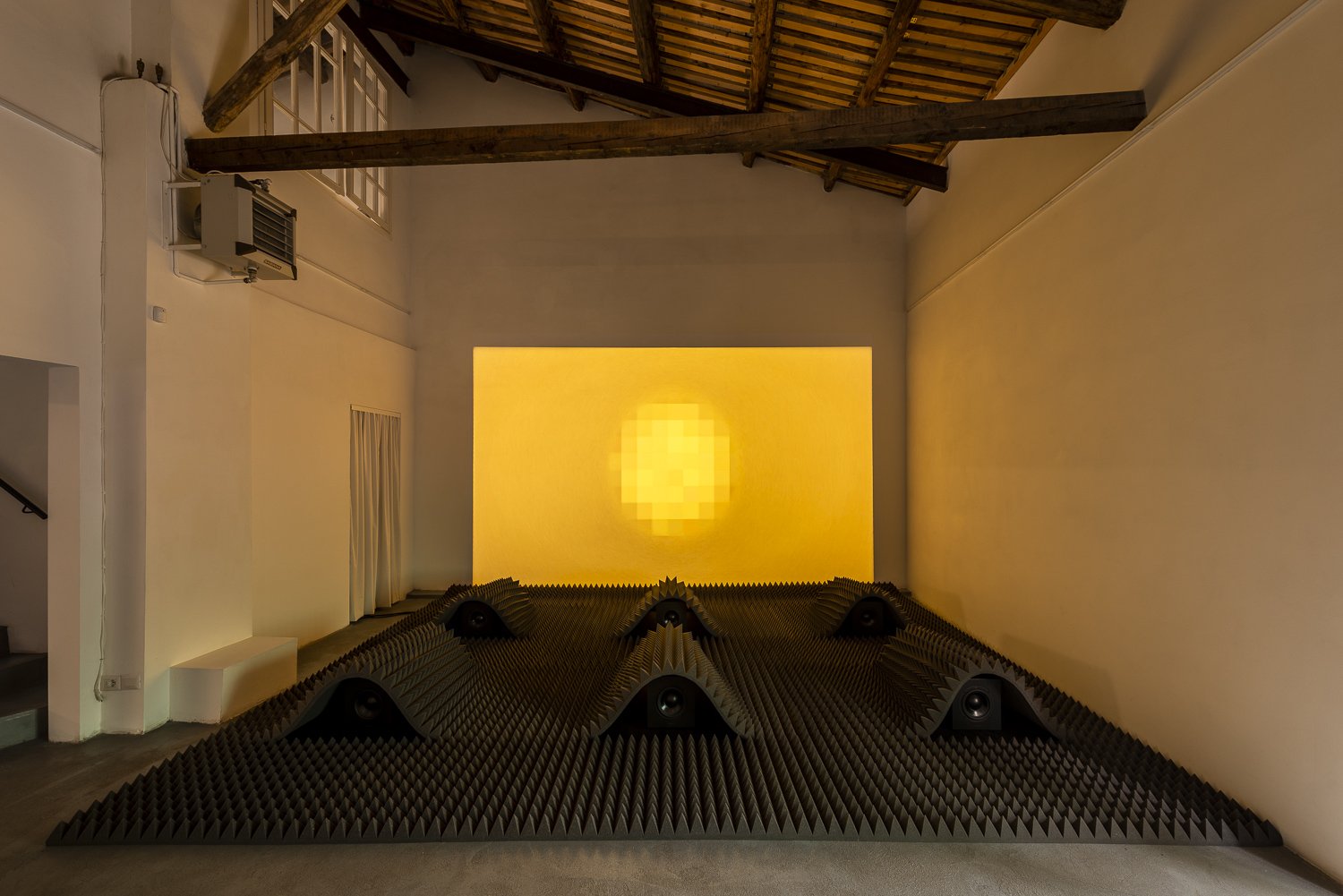On Monday, 16 September 2019, from 6:30PM, AlbumArte, an independent space for contemporary art in Rome, will inaugurate the exhibition Reflecting Women, the first solo show by the Lithuanian artist Kristina Inčiūraitė in Italy. The exhibition, which will remain open until Saturday, October 26, is curated by Benedetta Carpi De Resmini.
Reflecting Women focuses on the concept of female identity. When Simone de Beauvoir declared that "one is not born but rather becomes a woman", she implied that gender is in no way a stable identity, a fixed structure, but is built continuously over time. The exhibition, held in the wake of the Golden Lion won by three female artists of the Lithuanian Pavilion in the 58th edition of the Venice Biennale, intends to start the reflection on one of the most controversial issues of recent times – female identity – through the eyes of one of the most renowned artists of the Lithuanian art scene Kristina Inčiūraitė. The title itself indicates a reflection on gender, a genre generally established through the stylization of the body. Reflecting expresses not only the analysis of the female figure, but also a reflection understood as a perception that each of us has through the observation of others. In fact, nobody can observe herself/ himself, except in a mirror, but a mirror can also show a distorted image, like the one that every woman receives and absorbs from the female iconography of contemporary society.
In her works, Kristina Inčiūraitė often explores the condition of becoming a woman, and Reflecting Women also deepens every woman’s awareness of her own role, highlighting the social and political issues related to the female figure. Paradoxically, the woman is shown through bodily absence, and the only thing that remains is her voice.
The exhibition starts with an audio-visual installation Desertification (2016), where the voice of the Canadian children’s choir rises like a sandstorm in the desert, by reflecting problems of Syrian refugees. Spinsters (2003), on the other hand, expresses the isolation of adolescents raised in a girls’ foster home in Vilnius. June (2015), a two-channel video work, shows a trapped Chinese woman, metaphorically associated with the image of a cricket, a popular insect in Chinese culture, imprisoned inside a jar. The theme of malaise is also featured in the work The Echo of a Shadow (2015). The experimental documentary shot in China questions the rapid urban development that took place in the country and the birth of the phenomenon of ghost towns, through the words and the gaze of the poetesses of imperial China, also revealing the difficulties of being a woman in a country like China.
The project is realized in cooperation with Latitudo and Kristina Inčiūraitė’s Studio. It was promoted by the Embassy of the Republic of Lithuania in Italy and implemented thanks to the support of the Lithuanian Council for Culture, i-Portunus (a project selected and supported by the Creative Europe Programme) and the Lithuanian Culture Institute.
Kristina Inčiūraitė lives and works in Vilnius. She creates photographs, installations, performances and sound projects, with particular attention to video installations, experimental films and documentaries. The artist is concerned with the collision of reality and fiction, as well as the links between imagined and real history. The voice is one of the most important elements of Inčiūraitė’s works; it is used as an off-screen narrative element. The artist tells stories of women, avoiding showing her protagonists deliberately. She has exhibited in numerous museums among which: the National Art Museum of China in Beijing, the National Art Museum of Ukraine in Kiev, the Oi Futuro Cultural Center in Rio de Janeiro, the Konstmuseum in Kalmar, the Łaźnia Centre for Contemporary Art in Gdansk, the ar/ge kunst Galerie Museum in Bolzano, the Kumu Art Museum in Tallinn, the Muzeum Sztuki in Lodz, the Műcsarnok in Budapest, NGBK in Berlin, the Casino Luxembourg - Forum d’art contemporain in Luxembourg, the Pori Art Museum in Finland, the National Gallery of Art and the Contemporary Art Centre in Vilnius.

